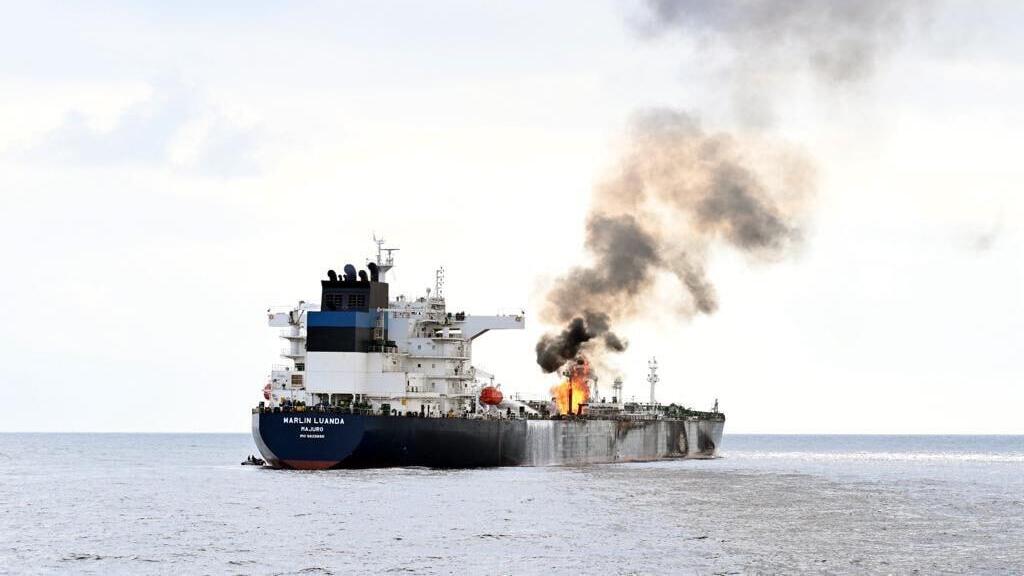Getting your Trinity Audio player ready...
Russia provided targeting data for Yemen’s Houthi rebels to target ships in the Red Sea, the Wall Street Journal reported late Thursday, as Russian President Vladimir Putin strengthened his ties with Iran and worked to further destabilize the Middle East.
The Houthi rebels who have been targeting maritime traffic since the outbreak of the war, claiming to support Hamas in Gaza, were given satellite data from Moscow that enabled them to increase their attacks in a broader area, the Journal reported citing two senior European security sources and another person in the know.
2 View gallery


Cargo ship on fire after a Houthi attack in the Red Sea
(Photo: Indian Navy Spokesperson)
One of the sources said the data was provided to the Houthis by members of Iran's Revolutionary Guard Corps (IRGC) who were embedded with the rebel group.
Houthis target a ship in the Red Sea
According to the paper, the assistance to the Houthis demonstrated how far Putin was willing to go to undermine the West's political and economic order and to destabilize the Middle East and Asia. According to analysts, by prolonging the war in the region, Moscow was forcing Washington to allocate resources and concentrate its attention away from Russia and China.
2 View gallery


Iran president Masoud Pezeshkian with Russian President Vladimir Putin
(Photo: Maxim Shemetov / Reuters)
“For Russia, any flare-up anywhere is good news, because it takes the world’s attention further away from Ukraine and the U.S. needs to commit resources—Patriot systems or artillery shells—and with the Middle East in play, it’s clear where the U.S. will choose,” said Alexander Gabuev, director of Carnegie Russia Eurasia Center, a think tank based in Berlin.
Russia has increased its cooperation with Iran and North Korea and has involved them in the war in Ukraine. Both countries have supplied the Russians with ammunition, drones and missiles and North Korea also sent some 3,000 of its soldiers to train in Russia.
According to U.S. and South Korean officials, the assistance is vital for the Russians who are suffering a shortage of manpower and weapons and contributes to Russia's strategic aims in the Middle East.
Get the Ynetnews app on your smartphone:




